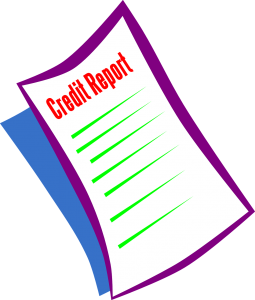Buying a Home and Need to Raise Your Credit Score? Here’s How
Be Aware of Your FICO Score
FICO score is a type of credit score that is calculated by the software of the Fair Isaac Corporation. Banks and other lending institutions use borrowers’ credit history through FICO, as well as other details in order to assess their ability and willingness to pay debts. Having a FICO score of 720 and above is considered to be a good credit score for most banks and lending institutions.
One of the most important aspects to your success in making a big purchase such as home, is staying informed about what’s on your credit report. When I first decided to move to California, I was not aware of something negative that was on my report and had to resolve the issue or else accept less than desirable rates. You should check yours before you start looking for a home and you should keep checking it regularly. My personal favorite for getting a “three bureau” report is www.creditchecktotal.com. You have access to a single report from all 3 bureaus (Experian, Equifax, and Transunion) on a monthly basis, and also get immediate alerts of any changes to your file. The detailed reports identify what’s impacting your score and how to make improvements. It’s $1 for the first report and just $29.99/month thereafter – well worth the expense in my opinion! You can also order them directly from the bureaus and are entitled to one report every 12 months. Be aware that each creditor may use a different bureau, so do not think that ordering from just one every few months is going to cover you.
Check Your Credit History

A credit history contains information and details about your financial accounts. It is like your report card and accumulated grades during high school that is required to be submitted upon your college application. By having a good credit history, qualifying for a credit card, applying for a home loan, renting a car, and even getting a job will be much easier.
The three primary things that a mortgage lender will require you upon application are:
- The amount of your initial payment for the debt.
- Substantial proof that you have a steady flow of income.
- Your credit history or the summary of all your past debts.
Being aware of your credit report is important because your credit score reflects your ability and willingness to pay. Having a higher credit score entices lenders that you are most likely to pay your debts on time, and that you are a good investment. Moreover, it is important to check your credit report every once in a while in order to take hold of anything that is affecting your credit.
Pay Off Existing Accounts
Settling delinquent accounts such as tax liens, car loans, unpaid collection accounts, and other old debts has a direct correlation to your credit score. You can either pay these delinquent accounts in full or negotiate a settlement plan with your lenders, in order to improve your credit score and prevent it from dropping even more.
The key here is to pay down debt to the appropriate amounts to convince mortgage lenders that you deserve to be qualified for the loan. Credit cards, for instance, should be maintained at 30% of available credit. Contrary to popular belief, paying off credit cards to 0% is less credit worthy than maintaining 30% because it shows your ability to effectively manage credit, as opposed to just not using it. Consumer loans should be paid on time and for more than minimum due when possible.
Know What To Prioritize & Make Timely Payments
If you are burdened with tons of delinquent accounts, you are most likely to feel overwhelmed and may not know which account to prioritize first. It is important to prioritize the ones with the smallest balance first, so that you can eventually focus on the large one–this approach is called the debt snowball method. By settling small accounts, you will have the sense of accomplishment that will keep you motivated to pay for your existing accounts.
It is also important to maintain a pattern of timely payments before applying for a mortgage. However, if you just settled some delinquencies or recently received a late payment notice, it is advisable to wait for another six months to improve your credit score before applying for a loan or mortgage.
Dispute Inaccurate Credit Reports
Carefully review and assess your credit reports. A single misinformation can negatively affect your overall credit score. So if you’re not careful, you may end up having your application denied because of an inaccurate credit report. But the good news is, you can remove this inaccurate information by reporting it to the credit bureau, accompanied by a proof of the said mistake in your report.
In fact, according to the report made by the Federal Trade Commission, one out of five customers experience errors on their credit scores, which is why having a copy of your own credit report is important. Most common mistakes that were reported are incorrect address or name, duplicate entries, account status errors, being charged with a credit account that belongs to somebody else, and many more.
